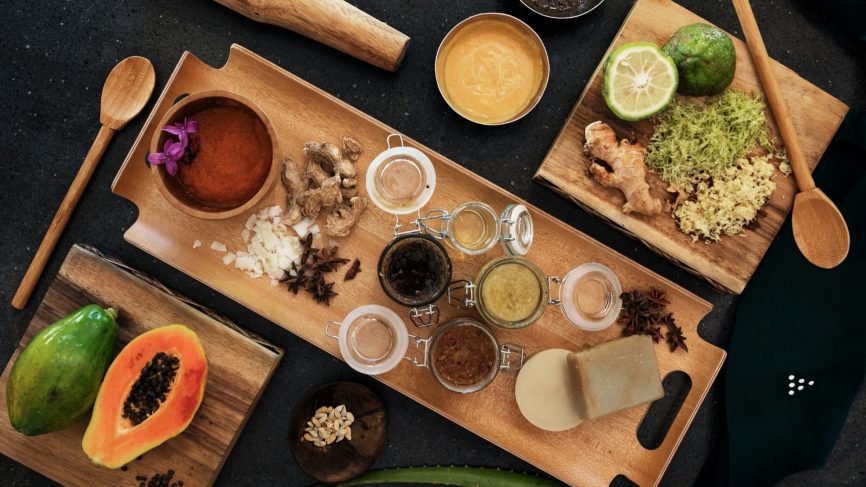
Healing can start at home. Until we can travel to our favourite spas and hotels for some much-needed TLC, here are practices to help nurture and sustain good health, from nine of the world’s top wellness retreats.
Note: These guidelines are to enhance long-term health for people who are in good health and not on medications or in need of medical attention at this time. If you have symptoms of COVID-19 or need guidance for an ailment or illness, please contact a healthcare provider.
VIVAMAYR, Austria
Bollywood’s detox haven VIVAMAYR has been sharing the famous Mayr cure in Austria since 2004, and its doctors also offer consultations at Mumbai’s The Vedary.
Support the immune system: “You are not what you eat, you are what you digest,” says Dr Harald Stossier, founder of VIVAMAYR. “Most of the immune system is related to the intestine, so keep it working well. Eat slowly, chew well, take time for your meals, enjoy your meals but stop eating when you feel it’s enough and eat less in the evening. Our capacity to digest food is better in the morning and less in the evening, and raw food requires a lot of energy to digest. So after 4pm, we can eat cooked, grilled or steamed vegetables and well-prepared fish instead, which is easily digestible. To keep healthy and strengthen immunity, it is recommended to take vitamin C during the day, and at the end of the day, have 2-3gm vitamin C—taken as capsules of buffered vitamin C. The most concentration of vitamin C is found in fruits like orange, kiwi, lemon, papaya, strawberry and vegetables like broccoli flower, pepper, sweet potato and tomato; it’s important to not eat these raw in the evening. If we overeat fruits and are not able to metabolise them regularly, there’s fermentation, so eat in moderation and especially not as juices or smoothies.”
Improve posture for physiological well-being: “A great example of how our lifestyle affects our health issues is the use of smartphones,” says Michael Omann, head of sport science and exercise therapy at VIVAMAYR ALTAUSSEE Health Clinic. “How do we use the phone? The back is round and we pull the head forward; we spent hours in that position in front of a screen. Muscles start tensing; round shoulders and neck tension are a common consequence, which can result in migraines and shoulder impingement. We have to incorporate basic human movement patterns in our daily life. Focus on auto-elongation and repeat it several times a day: Stand upright, pull the sacrum down which leads to slight pelvic tilt. Pull your chin back and bring your forehead down–make a long neck. Basically you make your spine long; practice it while standing, sitting and walking and your oxygen flow will improve automatically. Sleeping is the most valuable source of recovery; a mattress that’s a little hard is a better choice considering our spine, and try to sleep with legs elongated. Incorporate little hacks in your daily routine, such as standing up and bending backward after an hour; do it every day until it is normal. Get a desk where you can easily vary your position from sitting to standing. Walk around while on a long phone call. Strengthen your glutes. You have one body so take care of it!”
Vegetable tea recipe: Recommended by Stefan Mühlbacher, head chef at VIVAMAYR Altaussee. Pour 4 litres of cold water into a large pot. Take 300gm celeriac, 150gm celery, 300gm carrots, 100gm yellow carrots, 300gm parsley root, 100gm parsnips; dice into 2x2cm pieces. Add this to 5 lemongrass stalks, 2 lime leaves, 5-star anise, and a little rocksalt to the pot. Also put in chopped herbs such as parsley and cilantro, and spices such as bay leaves, nutmeg, caraway and coriander seeds. Bring all the ingredients to a gentle boil and cook for an hour over low heat. Strain broth through a sieve. Season for taste with rock salt and nutmeg. The broth can be kept up to two days in the fridge.



